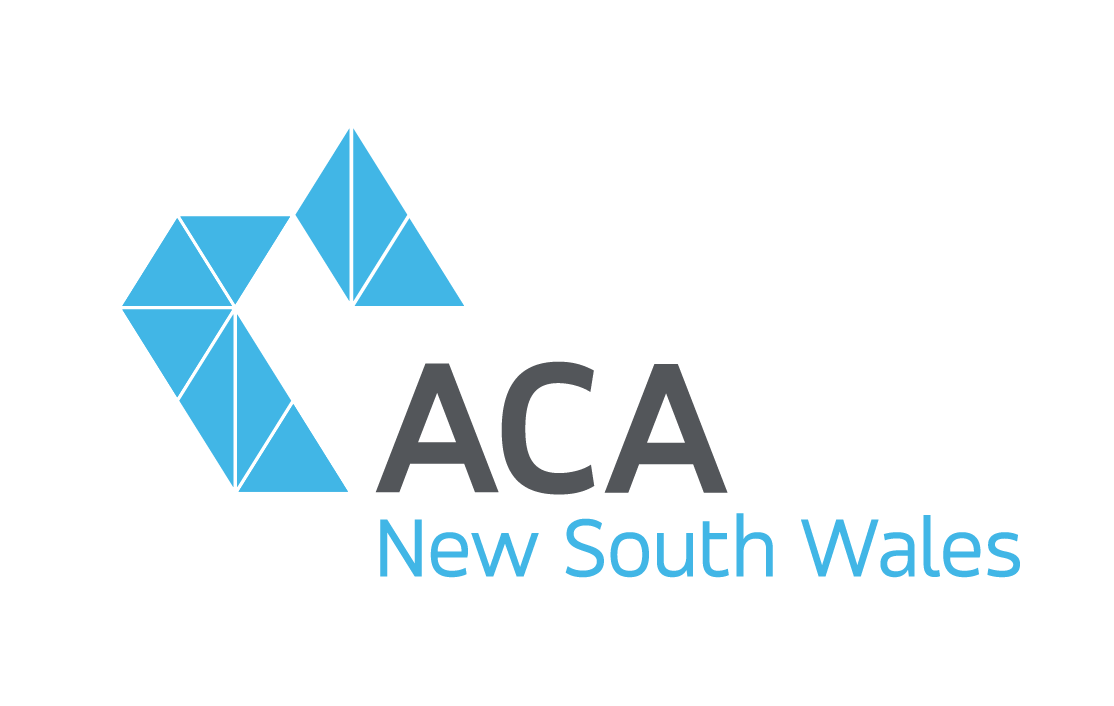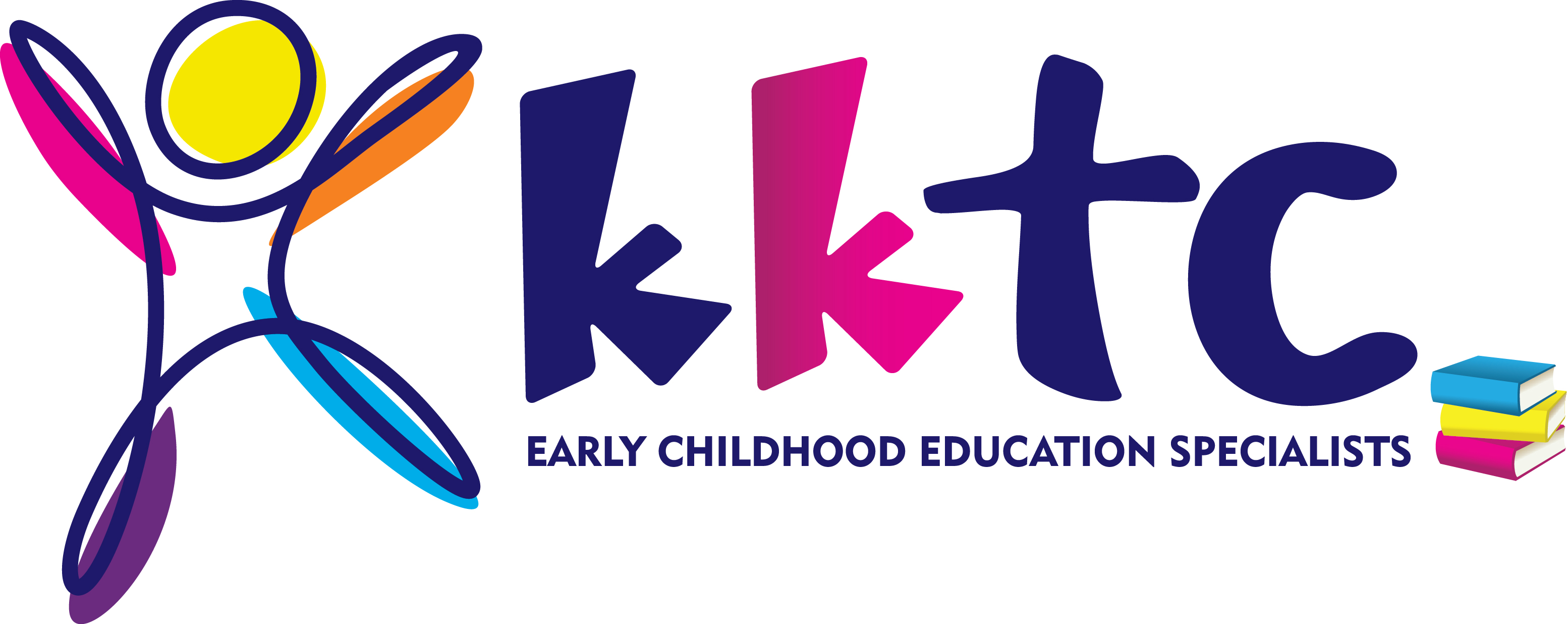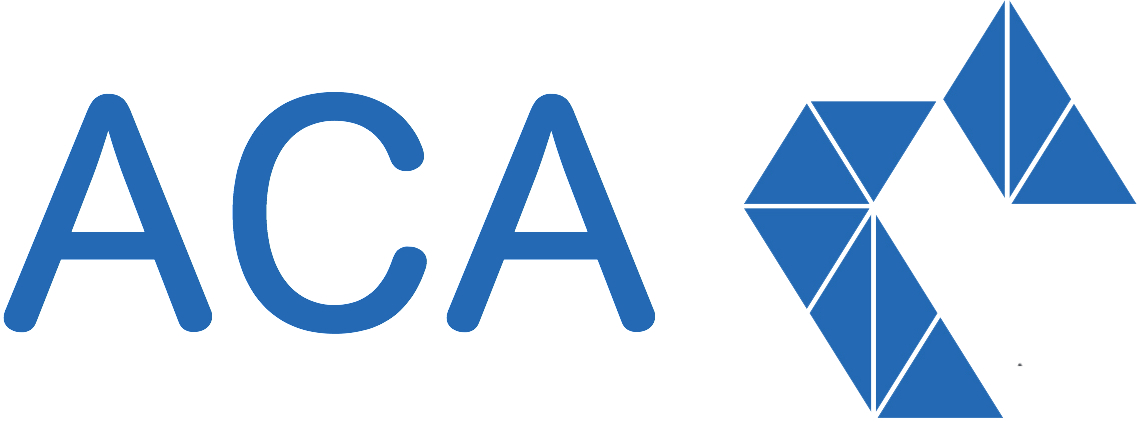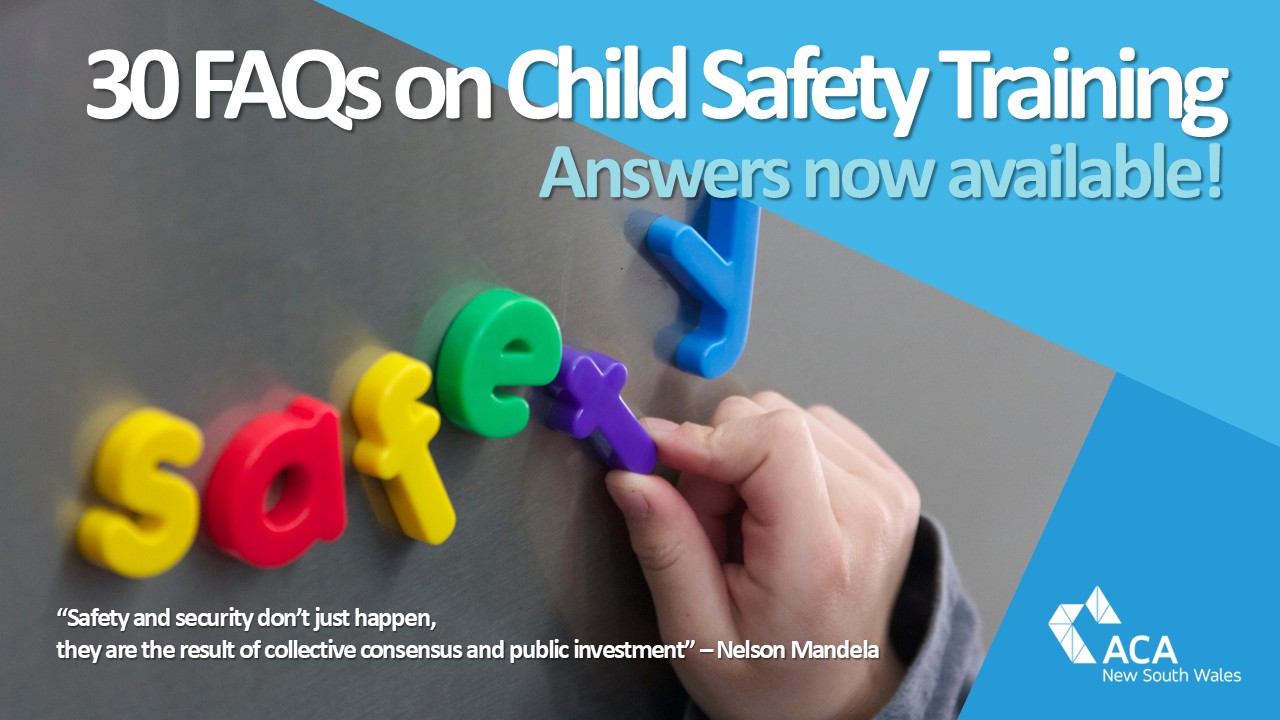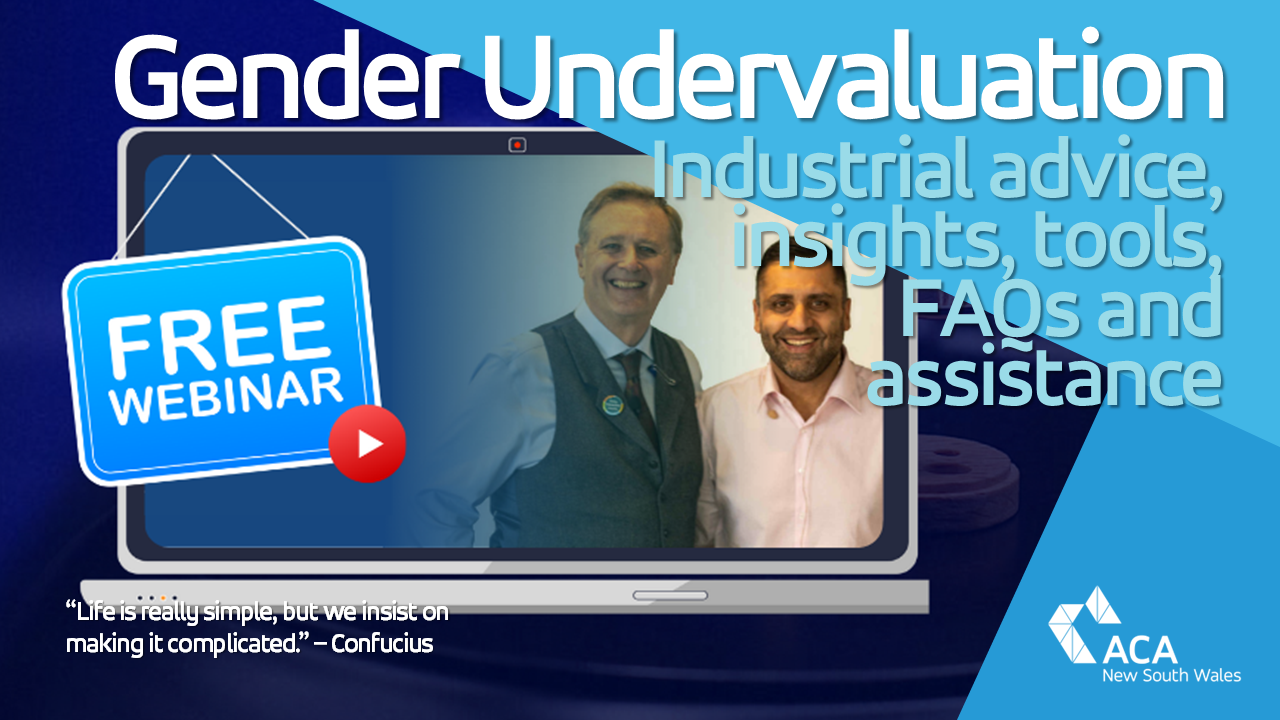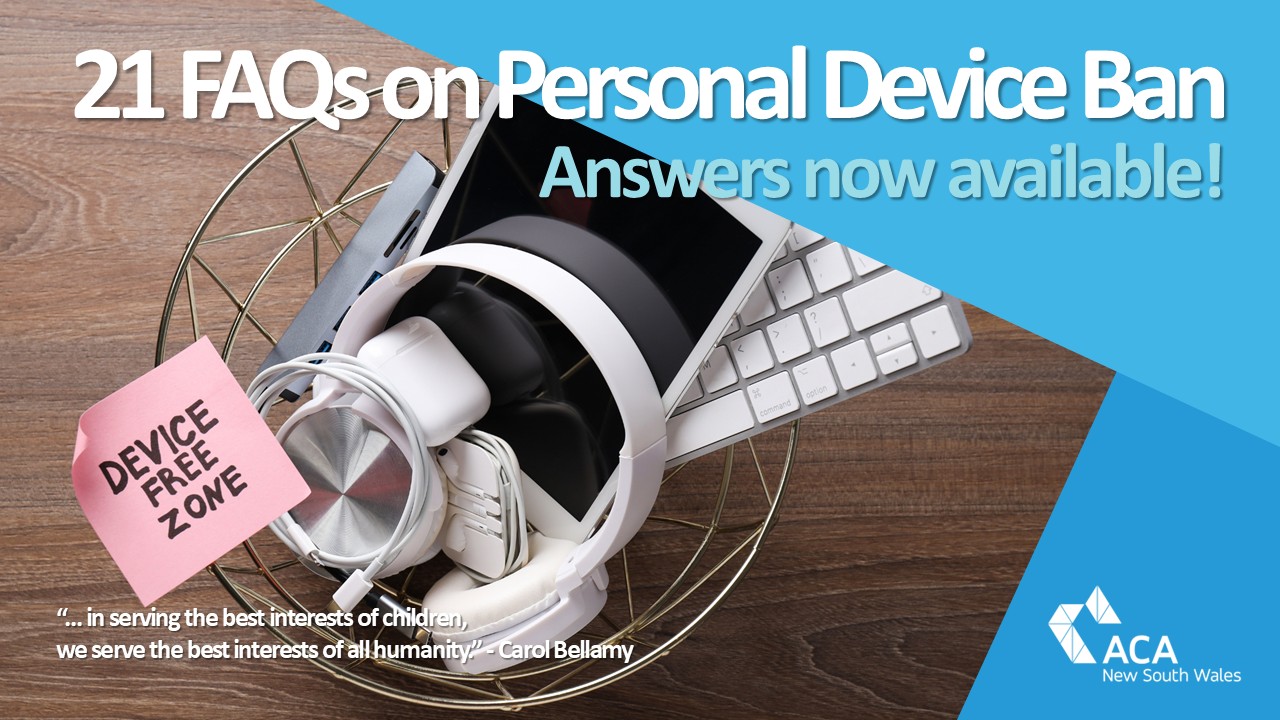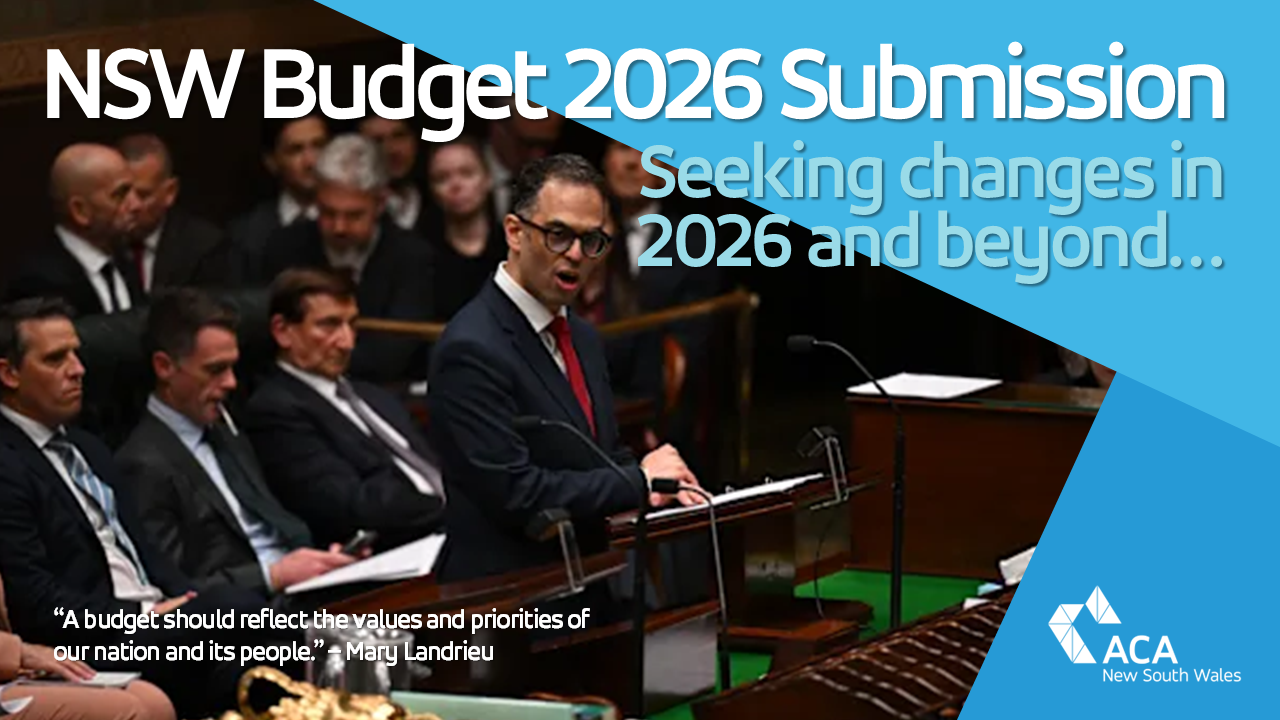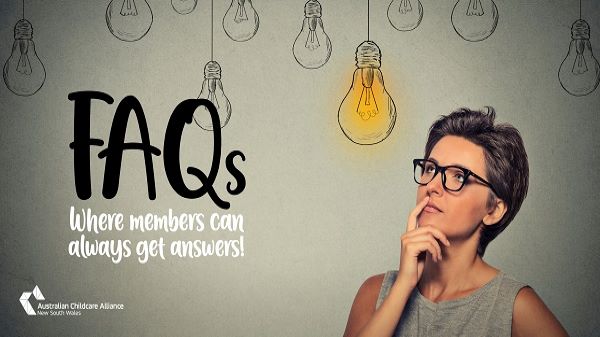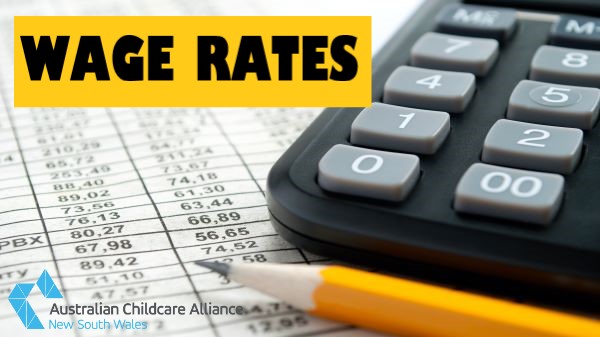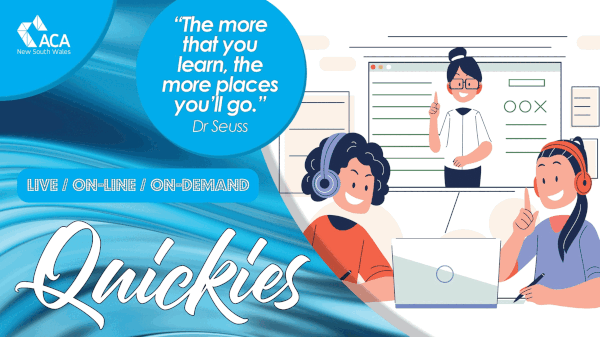Today marks a very important moment in the history of the early learning sector, with the first ever application for a supported bargaining authorisation being lodged at the Fair Work Commission in Melbourne this morning.
As ACA President, at 10am today I will participate in a press conference within the foyer of the Fair Work Commission offices to make the public announcement around this application process and answer any media queries.
You can read ACA's media release on this topic here.
As previously communicated via our recent webinar - which is still available via the ACA NSW webpage (username and password required) or by contacting ACA NSW - some weeks ago the ACA Board decided that it was in the best interests of the industry (both employers and employees) to participate in the supported bargaining negotiation process.
The ACA Board believes it is important to participate constructively in negotiations related to pay and conditions of employment on behalf of ACA members.
Made possible under new provisions in the Fair Work Act, the tripartite negotiations are the first time our sector has come together to negotiate pay and conditions for our workforce.
It is important to note that these provisions compel the Federal Government as major funder of our sector to take part in the negotiation process.
This application, if allowed to move forward, will enable a group of ACA members, the United Workers Union and Federal Government to work together in negotiations for funded wage increases for the Early Childhood Education and Care (ECEC) sector.
We know that the early learning sector was built on two pillars - a stable and supported workforce, and strong and viable services and providers.
Whilst our educators would benefit greatly from a wage rise, at the same time Australian families need affordable early childhood education, during an era when they are already doing it tough running a household budget.
We know that wage rises for our sector will require funding, and we welcome the opportunity to work with the Australian Government as a part of this bargaining process to ensure that well-needed, positive outcomes for our educators do not leave Australian families worse off.
This is an opportunity for us — as service providers, unions and government — to work together and begin the formal process to improve wages for our valued educators.
We have provided some broad Q&As around today's announcement in the article below, which we encourage you to read and digest.
We are also in the process of answering a set of much more detailed questions from the May 17th webinar, which we will share with you as soon as possible.
Please be aware that ACA will work with the union and other employer groups - as well as the Federal Government - to advocate for the long-term viability and wellbeing across the ECEC sector.
Q&As - Supported Bargaining Process
Why is the ACA getting involved?
As previously communicated via our recent webinar - which is available via the ACA NSW webpage (username and password required) or by contacting ACA NSW - some weeks ago the ACA Board decided that it was in the best interests of the industry (both employers and employees) to participate in this process.
The ACA Board believes it is important to participate constructively in negotiations related to pay and conditions of employment on behalf of ACA members.
How does the Supported Bargaining Process work in practice?
The whole process is a little complicated (and untested) but it involves the following:
- A number of employers and unions ask the Fair Work Commission to give them permission to negotiate together. This process will start with an application to the Fair Work Commission in the first week of June. Those service providers involved will be listed as the employers participating in the application.
- There will then be a formal hearing in the Fair Work Commission (involving evidence and submissions) where the Commission will decide whether or not to grant that permission.
- We believe it will be granted and therefore go ahead.
- Once this occurs, all parties involved will commence the process of negotiating what might best be described as an industry enterprise agreement.
- The Federal Government will be involved in this process to ensure that any wage increase coming out of the negotiations is properly funded.
How is ACA getting involved?
A handful of ACA board members from each ACA State Body have volunteered to take part in the supported bargaining application and negotiation process, as individual service providers.
There are about 20 members of ACA involved across all states, city and country and all of these will be represented in the Fair Work Commission process and then the negotiations by Nigel Ward of the Australian Business Lawyers & Advisers (ABLA) - who regularly represents ACA in the Fair Work Commission - and Paul Mondo, ACA President.
Are there other employers involved?
Yes, there are. There are also employers involved from the community childcare sector who will be represented by another person.
Which unions are involved?
We expect that the United Workers Union, the Independent Education Union and the Australian Education Union will all be involved in this process.
If any of your team members are a member of one of these unions, they may contact these staff members about the process. As always, the decision of each of your individual staff members to join a union or not join a union is entirely a matter for them to decide.
What sort of wage increase might early childhood educators get?
We honestly do not know. This will depend on the negotiations and obviously what type of increase the Federal Government is prepared to fund. As the negotiations progress we might get greater clarity on this and we will keep you informed of this.
How long will this process take?
Getting the permission of the Fair Work Commission for us all to negotiate together could take several months particularly given that these are new laws and have not been used before.
We will keep you posted during this time about how things are going.
Once permission is granted (which we believe it will) the negotiations will then start.
Again, these could take several months so it is likely that this process will take us into 2024.
As the negotiations progress, we will regularly keep you informed about where things are up to.
What does this mean for me personally as a service provider – do I have to do anything right now?
No - you are not required to do anything in this process.
ACA will provide relevant updates as they come to hand.
PUBLISHED: 6 JUNE 2023
SOURCE: ACA NATIONAL
